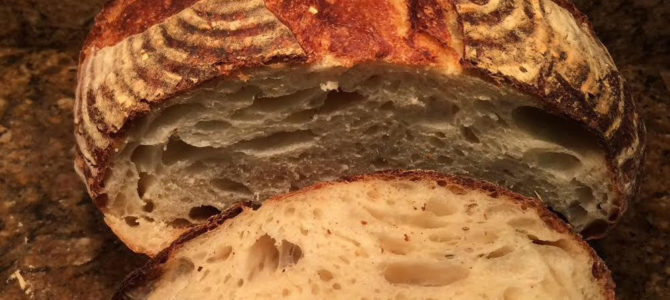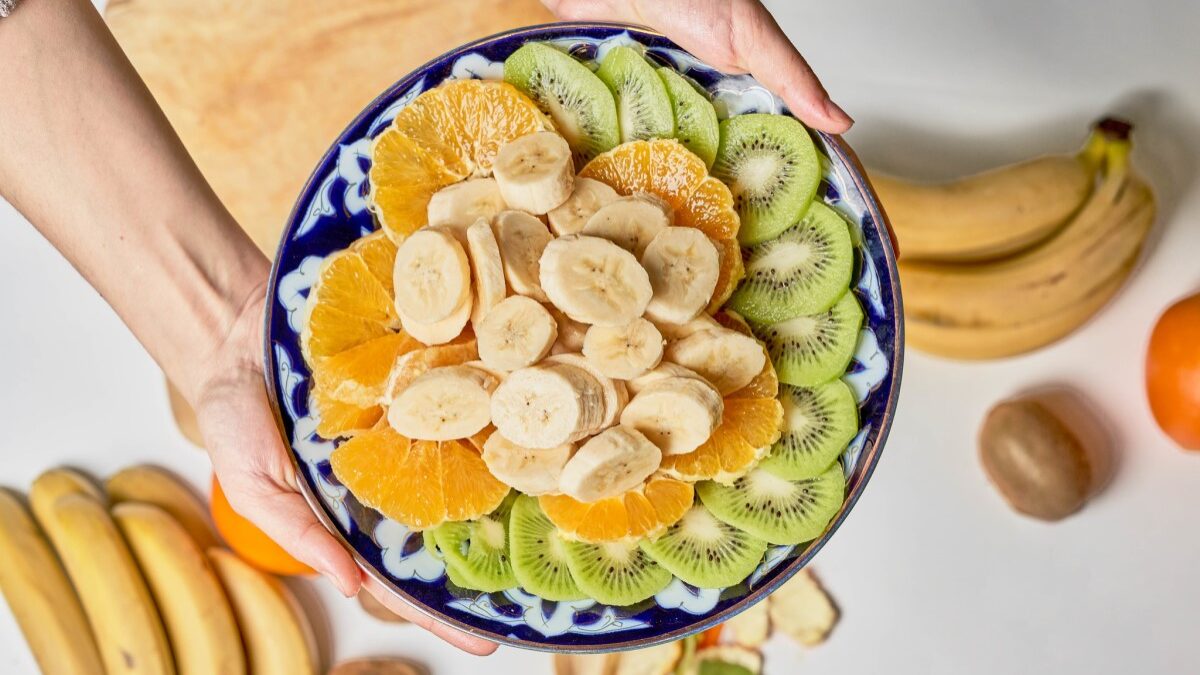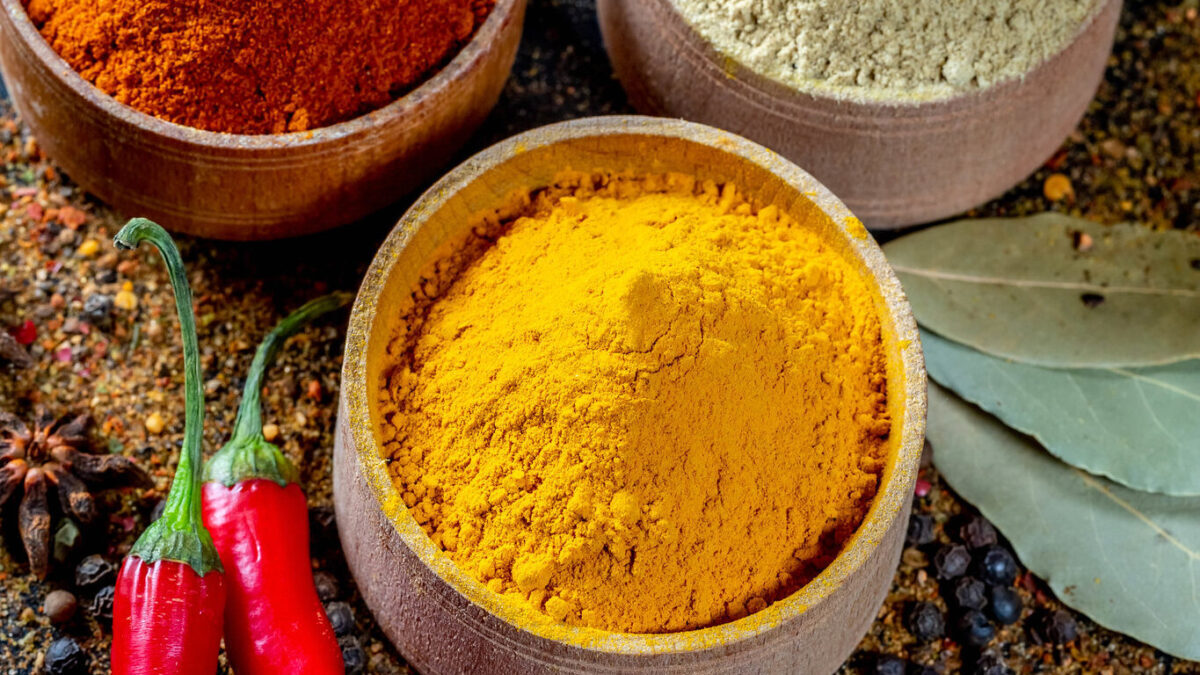
It has never been easier to find good bread in the United States. In most cities and some of the hipper rural outposts, it is fairly easy to find exceptional bread, the kind that seems less like a loaf of risen wheat and more like an astonishing culinary art piece.
In contrast to the dull supermarket fare that dominated the bread landscape of the Baby Boomer generation, many if not most Americans now have access to an endless variety of authentically good bread options, particularly sourdough. We are blessed to live in an age of quality bread abundance.
You should not buy those breads, however. You should bake your own.
There is a case for buying bread from your local artisanal bakery. Many bakers are doing stupendous work these days, and in a lot of cities bakeries have contributed greatly to urban revitalization and renewal: if a bakery pops up in a blighted downtown district, you can be sure that good restaurants, small-scale manufactories, and other encouraging economic developments are very likely to follow. Bakeries generally do other products quite well, too: pastries, biscuits, donuts, croissants. We must of course also admit that buying bread is generally much easier than making it.
That being said, baking one’s own bread comes with a host of strong advantages, which we will get to momentarily. But before that, I want to preemptively examine a common objection, one that lays at the forefront of a growing kind of neo-technocrat critique of home cooking.
The War Against Home Cooking
A small but growing socio-economic zeitgeist looks at home food preparation—cooking—as a sort of dusty, lamentable relic of yesteryear, a non-necessity in an age of capitalist specialization and urban restaurant diversification. This ethic was summed up aptly by Time editor Bill Saporito, who a few years ago made “the case against cooking.” The essay is littered with economic illiteracy (“today…many Americans are too poor to cook at home”) and almost comical postindustrial spiritual malaise (“if cooking can’t be done on my iPad, is there any point in doing it?”).
At its heart, Saporito’s culinary worldview—increasingly common in an economy with a rapidly expanding pre-made meal industry—is based in the idea that home cooking, being at times moderately difficult, can only be justified on grounds of sentimentalism, what Saporito calls “the veneration of the stove.”
This is a poisonous idea, chiefly because it conflates domestic efficiency with domestic drudgery, assumes there is no value in learning a creative and objectively useful skill set, and treats the household economy a mere and base extension of the industrial economy rather than a sui generis phenomenon in its own right. But it is also a very profitable idea, which is why an entire economic field is growing around it.
Perhaps no food is more subject to this silly and destructive ideology than bread, a staple virtually everyone loves but very few people actually undertake to produce. Indeed, bread baking is such a non-feature of most American households that virtually every grocery store devotes an entire aisle to prepackaged bread products—to say nothing of the in-store bakeries that offer an additional selection of nominally artisanal products. Like the old quote about what it takes to get to heaven: everybody wants bread, but nobody wants to bake it.
You should consider baking bread, however—specifically sourdough bread, using wild sourdough yeasts—for a bevy of important reasons. Here they are.
1. Control
As with any kind of home cooking, the No. 1 practical benefit (aside from price, perhaps, about which more below) is the absolute control the baker has over the product. If you bake bread at home, you’ll very likely only use three ingredients: flour, water, and salt (four if you count the starter you’ll need to ferment the bread).
This iron simplicity represents a priceless advantage over nearly every loaf of bread in the supermarket. Prepackaged grocery bread is filled with a library of garbage ingredients—preservatives, dyes, conditioners, added sugars—that render a sliced loaf of supermarket bread less like bread and more like a laundering system for industrial runoff. You would not eat sodium stearoyl lactylate or ferrous sulfate on its own. So why tolerate its presence in your bread?
You can get pure three-ingredient breads quite easily at your neighborhood artisanal bakery, but ingredients aren’t the only elements of control in a loaf of sourdough bread. The final outcome of sourdough—the taste, the texture, the crust, the density, the size—all depend upon a great many variables that you, as the home baker, can tweak endlessly to your liking.
Want a slightly more sour loaf? What about a more air-filled crumb? Maybe a softer crust? All of this and more can be endlessly manipulated to fit your preferences. Baking your own bread versus buying it in a store is a little like shooting with raw photography versus shooting with a disposable camera.
As with any home cooking, baking bread at home places the input and output of the loaf squarely in the hands of the person who is most concerned with such things: you, the baker (and you, the eater).
2. Price
Yes, it is increasingly easy to find and buy good-quality bread, especially if you live in a city. But that bread generally isn’t cheap. Where a loaf of Wonder Bread might set you back around two bucks, give or take a few cents, a good loaf of sourdough might cost five or six bucks, if not more.
If, like this author, you have something of a chronic bread-eating habit, that kind of price tag can add up quickly. Making your own bread drastically brings down the cost of each loaf of bread you eat. In my economic corner of the country, I can generally get a bag of high-quality flour for around $5 that will allow me to make five or so good-sized loaves of bread. You do the math and tell me what sounds better: one loaf of bread for five bucks or five loaves of bread for five bucks?
A reasonable objection might be raised: while baking one’s own bread might be cheaper monetarily, it carries an associated higher cost due to the time one must invest in the baking process as a whole. Such time, the argument goes, could be better used working, recreating, or relaxing in some way; and in any case many people simply cannot find the time to bake bread.
It is a mistake to assume that bread-making cannot be both recreative and relaxing. But this is an odd argument—-it is one you encounter frequently in the cultural food debate more generally, with many people insisting they “just don’t have time” to cook at home. Such an argument seems to presume a populace that largely has 100 percent of its schedule already spoken for, one that simply cannot afford to fit in an extra five minutes of rest, let alone the time necessary to bake bread.
Sorry, but this is false: many if not most of us have plenty of time to cook well, up to and including baking our own bread. Consider: a recent study found that consumers spend, on average, upwards of five hours per day on their mobile devices, with nearly half of those hours spent on social media, gaming, and other entertainment apps. Two and a half hours is far more than enough time to bake a loaf of bread. Indeed, the actual amount of time you spend mixing, fermenting, shaping, and baking, although generally spread out over four to six hours, really only demands about an hour’s worth of attentive or active cookery.
If your argument is, “The average person doesn’t have time to bake his own loaf of bread, he really needs to spend that time mindlessly scrolling through Facebook status updates!” then you have already lost the debate and should just go ahead and start baking. Most people can find the time to bake a loaf of bread at some point throughout the average week. They just don’t want to. If a person simply doesn’t want to bake, then there’s nothing wrong with that—but we should be honest about it, and not pretend our desultory and emotionally stunting smartphone habits are somehow a superior way to spend our time.
3. Skill
Baking your bread at home will teach and reinforce valuable skills and knowledge—not just baking the bread itself, but also (if you do your homework, which you should) elements of biology, chemistry, agriculture, domestic economy, time management, patience, careful observation, and many other things.
Above all, baking bread teaches you the infinitely priceless skill of producing something of real tangible value, something precious few of us get to do these days. There is simply nothing like baking a good loaf of bread. It is an immensely satisfying experience. And there is nothing like sharing a good loaf of bread with friends or family members and having them exclaim over it, compliment it, enjoy it.
There is something about baking, and good baking in particular, that imparts a sort of magical wonderment upon whoever consumes its result. More so even than good home cooking—which is, to be sure, another complex skill in its own right—baking is a craft, the kind of thing each artisan must both learn well and fashion to his own unique tastes and abilities. When you bake bread, you don’t just become “the guy who bakes bread,” you become “the guy who bakes bread that particular way.”
Unfortunately, there is increasingly less and less purchase for this type of cottage sentiment in our society. A particular type of postindustrial cynic looks upon things like baking bread in the same way that he looks upon, say, knitting one’s own socks, or washing one’s clothes with a washboard: an interesting relic of the past, the utility of which is outweighed by its inconvenience. Why bake bread, after all, when skilled professionals are willing to do it for you, the same as there are people willing to make your socks and build you washing machines for your laundry?
On its face this argument seems to make sense, particularly in an age of increasing specialization and economic compartmentalization, an order that has certainly brought humanity undeniable gains. But such an argument errs fatally in assuming that a thing like clothing is really comparable to something as primary and fundamental as food.
Clothing is, of course, a necessity for us civilized hairless apes, but ultimately we do not consume clothing so that it becomes a part of ourselves. Clothing performs many useful functions, but it does not, nor can it ever, nourish us body and soul. Food performs both of these functions.
It is thus hardly controversial that we might place a higher value on a loaf of homemade bread than we do a pair of homemade socks. The latter works perfectly fine as a gift, of course, but the former helps keep you alive—and, if done right, at low cost and higher quality than you’re apt to find elsewhere. It’s a win-win-win.
If you’re still unconvinced, give someone a homemade loaf of good sourdough and a homemade pair of socks; have her eat the bread and wear the socks, then ask which experience is more viscerally and spiritually satisfying.
In short, the skill of baking bread unlocks a whole host of benefits inaccessible with a store-bought loaf of bread or even a nice local artisanal loaf. Critics of homemade food—the ones who believe so firmly in a society in which everyone does only one thing—commit a fallacy by presuming that everyday life can be effectively and appropriately boiled down to a neverending question of, “How can I pay someone else to do this for me?” It doesn’t always work that way, nor should it.
4. Experience
With all this in mind, I submit that there is one final benefit to baking bread at home: it is just a lot of fun. Part of that fun comes from learning and mastering a craft, of course—it is always fun to figure out how to do something good well—but even after you have learned how to bake a suitable loaf, the pleasure still remains.
It is fun to see the health and vigor of your little sourdough starter, teeming with friendly bacteria that make the dough expand like a microwaved marshmallow. It is a joy to see the dough rise as it ferments on a warm windowsill. It is richly satisfying to shape the dough into a boule or bâtard, watching as your loaf materializes out of what was, just moments before, a glob of air-filled flour and water.

Laying eyes on the loaf after it has risen in the oven is like opening a little Christmas gift. Sharing your fresh bread with friends and family—this thing you made specially for them and for you to enjoy together—is about as gratifyingly communal as it gets. These are not insignificant or immaterial pleasures. Surely they constitute more of a valuable and enriching tapestry of experiences than looking at celebrity nipple shots on Instagram for three hours.
The free market has done more to alleviate poverty and hunger than any other system ever devised by man. But the constant promise made by free market defenders that the division of labor, increase of mechanization, and resulting material plenty that follows will allow people to specialize in one thing while pursuing other things of “more value” does not always ring true.
In our postindustrial society, we waste a great deal of time on meaningless and useless diversions and distractions: third-pass reruns on Netflix, useless life updates on Facebook, outrage culture on Twitter, an endless string of video games and apps and snapchats. There are better ways to use one’s time than this. One of those ways is baking your own bread. So go do it.
For beginning bakers, here is a helpful guide to getting your sourdough starter up and running and baking a beginner’s loaf.









